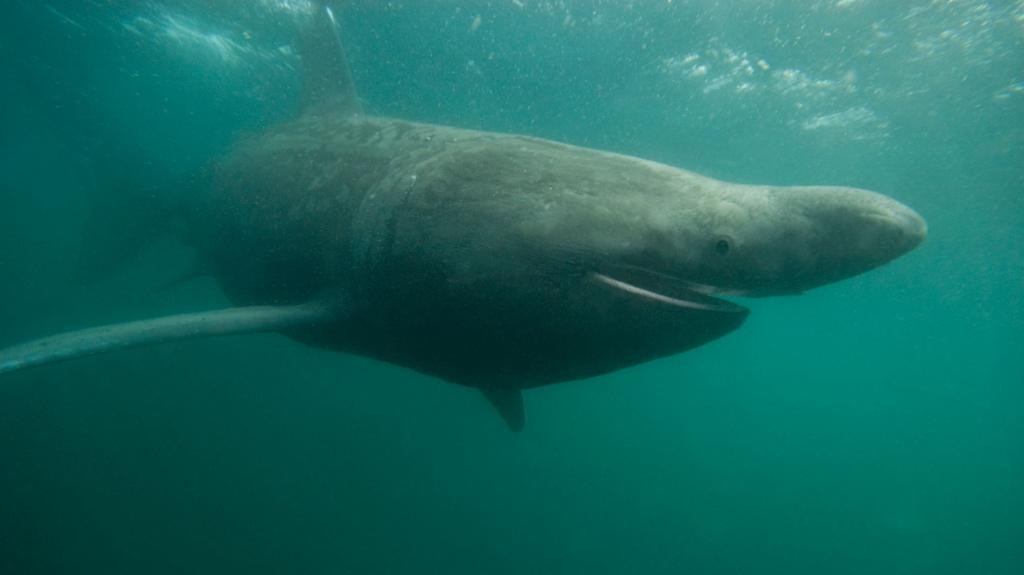Rising ocean temperatures may lead to a surge in populations of endangered sharks, rays, and native oysters in UK waters, as these species relocate to adapt to changing habitats, according to new scientific research.
However, the study also reveals that certain species, including the world’s longest-living animal, a type of clam, may struggle to adapt to these changes.
Researchers at the Centre for Environment, Fisheries and Aquaculture Science (Cefas) have, for the first time, mapped the projected responses of 19 threatened marine species to climate change in UK seas.
Many marine creatures could find new homes in areas of the North Sea expected to become biodiversity hotspots over the next 50 years. However, the disruption caused by climate change also carries the potential for negative consequences throughout the marine ecosystem.
In May, a significant heatwave raised UK water temperatures by up to 4 degrees Celsius above normal.
“As an island nation, our dependence on the sea for food and employment is substantial. Therefore, any shifts observed in our seas have significant repercussions,” Bryony Townhill, a Cefas marine scientist, explained to BBC News.
This analysis will inform government planning to ensure Marine Protected Areas (MPAs) continue to effectively safeguard species as their habitats evolve.
The global oceans are warming due to the absorption of approximately 90% of the excess heat generated by human combustion of fossil fuels.
UK waters are particularly susceptible to these climate change effects, ranking among the 20 regions globally exhibiting the fastest warming trends over the past half-century.
Fishing communities and sea swimmers have already observed changes, including reports of jellyfish swarms near beaches and Mediterranean octopus appearing in fish catches.
This study utilized two distinct projections of sea temperature, salinity, and sediment levels extending to 2060.
These projections were compared to the preferred habitats of 19 currently vulnerable species within UK waters.
Native oysters, basking sharks, spurdog sharks (which can reach 1.6 meters in length), and thornback rays emerged as the species most likely to benefit.
Mobile species are generally expected to fare better than stationary species.
Sea pens, crucial for reef building, could face a loss of up to 40% of their suitable habitat by the century’s end.
The ocean quahog, a clam with a lifespan exceeding 500 years, is predicted to face significant challenges.
Declines in these species could trigger knock-on effects throughout ecosystems and food chains.
Certain findings surprised the scientists.
“I didn’t anticipate native oysters faring well. They’ve been declining for a century – yet the climate model suggests potential for recovery, even thriving,” noted Prof Pinnegar.
However, he emphasized that even with potential new habitats, these vulnerable species remain susceptible to threats such as fishing gear, disease, and pollution.
“We’re not guaranteeing increased numbers; careful management and reduction of other pressures are essential for these species to thrive in new habitats,” he added.
The shifts in these 19 marine species are likely to impact North Sea coastal communities, potentially leading to increased fish catches, according to Dr Townhill.
The research is published in the science journal Marine Biology.
A separate study by the UK Met Office, published in the Weather journal, highlights the rapidly increasing probability of extreme air temperatures in the UK.
The likelihood of temperatures exceeding 40°C is now over 20 times higher than in the 1960s, according to scientists’ estimates, and this probability will continue to increase.
There’s a 50% chance of experiencing a 40°C day within the next 12 years, they predict.
Parts of the UK experienced temperatures exceeding 40°C for the first time in July 2022, during a heatwave that caused widespread disruption to transport and healthcare systems.
The World Weather Attribution group previously determined that such temperatures were “almost impossible” without human-induced climate change.
Additional reporting by Mark Poynting
Sign up for our Future Earth newsletter to stay informed about the latest climate and environmental news from the BBC’s Justin Rowlatt. Outside the UK? Sign up to our international newsletter here.
Fifty years since the release of Jaws, these photographers are showing a different, less frightening view of great white sharks.
Rowles Farm in Berkshire monitored weather conditions for three years before planting its vineyard.
With heatwaves likely to increase in some popular travel destinations around Europe, what does that mean for the future of the traditional summer beach holiday?
The self-seeding garden contains both native and non-native plants.
How dangerous is UV radiation and how can you protect yourself when levels are high?

